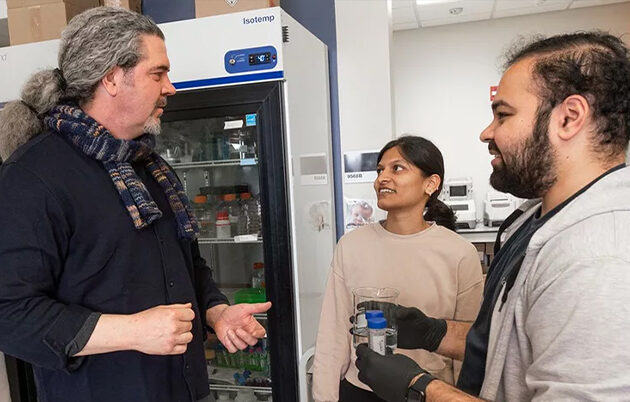Through the grant, NACHP’s objectives are to expand pre-college and college pathway opportunities to increase American Indian/Alaska Native student recruitment and retention, establish an American Indian/Alaska Native pre-faculty and faculty development pathway and develop new American Indian/Alaska Native health and medical curriculum offerings.
The grant team will also evaluate the initiative’s contributions through a culturally responsive framework regarding American Indian health professional pathways and medical education in partnership with the Wisconsin Evaluation Collaborative at the University of Wisconsin–Madison Wisconsin Center for Education Research.
“American Indians remain significantly underrepresented in medicine and health professions, and IIMAGIN will help us pursue innovative recruitment and retention strategies to address critical health care workforce needs as well as support future students, faculty and providers,” Thompson said. “Ultimately, through this work, we will improve health care for the patients and communities who will be served by these future health professionals.”
This initiative will provide an opportunity for NACHP to work with the tribal colleges and universities in Wisconsin, in addition to our statewide partnerships, according to Yancey.
“Over the next year, we will work with our grant partners to design focused pre-college and college programming, especially during the critical pre-college years when students are choosing their career interests in medicine and health,” she said.
The Lac Courte Oreilles Ojibwe University’s mission is to provide Anishinaabe communities with post-secondary and continuing education while advancing the language, culture and history of the Ojibwe, according to Jamie Gohde, nursing program director, Lac Courte Oreilles Ojibwe University.
“This partnership supports LCOOU’s mission by expanding educational opportunities and striving to decrease the health disparities in the Anishinaabe communities by strengthening the health care workforce with Native American health care professionals,” she said. “We are excited for this opportunity to come together to increase Native American representation in medicine and health professions.”
There is a great need in tribal communities in Wisconsin to have medical and health professionals that represent their own communities, cultures and identity, according to Brian Kowalkowski, dean of continuing education, College of Menominee.
“IIMAGIN will provide the tools and resources that will spotlight opportunities for young people who might not think some of these careers are attainable to everyone,” he said. “The College of Menominee stands strong in its 30th anniversary year to bring opportunity to the members of the Menominee Tribe as well as the rural communities that surround the reservation.”
The new initiative is critical to expanding pathways and partnerships to increase Native American representation in medical education and health professions throughout UW–Madison, said Dr. Amy Kind, associate dean for social health sciences and programs at the UW School of Medicine and Public Health and executive director of the Wisconsin Partnership Program.
“The Wisconsin Partnership Program is proud to support NACHP and the IIMAGIN initiative,” she said. “This important work will strengthen medical education pathways and advance health equity.”
Since its founding in 2012, NACHP has had an aim of increasing the representation of Native Americans in the health care workforce and advancing the health of Native Americans. The center has grown significantly from serving five Native American students and faculty to more than 50 Native American health professions students currently enrolled across the UW campus. The center also hosts an advisory council of more than 25 Native American health professionals. To date, NACHP has helped nearly 80 students graduate across the various health professions programs at UW–Madison, with a 100% graduation rate.
“NACHP is making tremendous progress towards increasing Native American representation in the health professions, but there is more work to be done to close the gaps in American Indian representation in medical education and health care, and to address the health inequities facing American Indian/Alaska Native people in Wisconsin and beyond,” Yancey said. “This grant provides a new opportunity to build upon our strengths and lessons learned over the past 10 years and it allows us to implement new strategies to enrich pre-college to faculty pathways, and further strengthen our partnerships to do this work together.”

